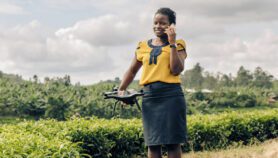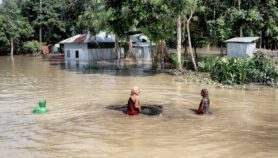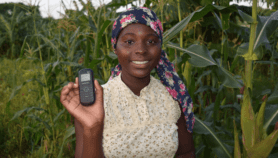By: Tatum Anderson
Send to a friend
The details you provide on this page will not be used to send unsolicited email, and will not be sold to a 3rd party. See privacy policy.
Remote parts of Sri Lanka could benefit from an improved mobile phone network if an experiment with green energy proves successful — and the results of the trial could be used by operators throughout the world.
A Sri Lankan mobile operator is installing ten trial base stations — two of which are up and running — using solar and wind power in the hope of determining whether it might be cost effective to roll out green technologies throughout the country.
Dialog Telkom, the country’s telecommunications company, is erecting the remaining eight sites in March and April. Each site will use different technologies — including wind turbines, solar panels, and battery and energy management equipment that help direct power to the base station from different energy sources — to assess the best configuration and combinations of technologies.
Five of the sites have base stations that use diesel generators. The other five will be at sites where the base stations are connected to the power grid but switch to alternative power shortages during intermittent energy outages.
The benefits of alternative energy sources for base stations are numerous, say experts. Diesel expels greenhouse gases and affects environmentally sensitive areas, says Hans Wijayasuriya, group chief executive of Dialog Telekom. Once alternative energy is in place, communities might also be able to use spare electricity generated by wind and sun.
But a major reason why operators are considering alternative energy is the cost of transporting diesel to remote areas and guarding it. This makes it expensive to expand mobile phone coverage to rural areas, said Jesse Moore of the GSMA, a global mobile operator group that is providing technical knowhow at trials.
"The developing world is the last remaining growth market [for the mobile industry] and in almost every developing country, that equals a power problem for operators," he said. Despite the intention to move away from diesel only about 2,000 of around four million base stations worldwide are today powered by alternative sources.
This is because in most cases diesel still works out to be cheaper than solar panels and wind turbines, say manufacturers. Today five diesel sites cost the same as three powered by alternative energy sources according to Mike Bergey, of Bergey Wind System, which is supplying wind turbines to Dialog Telekom sites.
But these economics should change by the end of the year because of new technologies and increasing demand, say manufacturers. At that point trials might turn into widespread rollouts, said Wijayasuriya.
"If it makes economic sense, then we could catalyse public policy on green power," he said, speaking at Mobile World Congress, a global mobile phone conference that took place last month (February).













